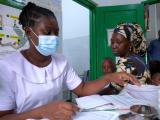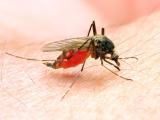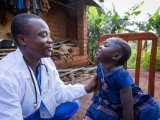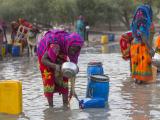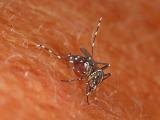Ahead of a major climate change meeting in Paris with a goal of reaching a binding global agreement, the World Health Organization (WHO) said today that public health impacts haven't been given enough attention in the debate.
In a statement, the WHO said now is the time for health voices to speak up, and it issued the first 12 country climate-change-and-health profiles to assist policymakers in considering the effects on health, such as increased transmission of malaria and cholera from flooding.
The United Nations Climate Change Conference (COP-21) will take place in Paris Nov 30 through Dec 11. Though it is part of ongoing discussions on the problem, this year's meeting is notable, because for the first time in 20 years of UN negotiations, leaders hope to broker an agreement among all of the world's nations.
Effects already evident
Health impacts of climate change are already being seen, the WHO said, with shifts in disease patterns, heat waves, floods, and degraded air quality, along with threats to food, water, and sanitation. The agency estimates that in 2012, 7 million people died from diseases related to air pollution, which it singled out as the biggest single environmental health risk.
The group predicted that between 2030 and 2050. climate change will lead to an additional 25,000 deaths each year from malaria, diarrhea, heat stress, and under-nutrition. Women, children, and people in developing countries will be hardest hit, which will widen health gaps, the WHO added.
Earlier this week, one of the world's leading infectious disease experts, Wellcome Trust Director Jeremy Farrar, MD, PhD, also voiced concerns that global climate change discussions aren't giving enough attention to the health impacts of climate change that the world is already experiencing. He added that the WHO hadn't made its voice heard on the topic.
Farrar said in a Nov 14 London Observer story that people in general don't think of the health impacts, which aren't an abstract threat. He said the three main health issues are the spread of infectious diseases, related issues of pollution and urbanization, and worsening migration. He added that one of his main fears is that climate change factors—rising global temperatures, humidity, and rising urbanization—could fuel the spread of dengue fever.
Other examples are flooding, which could threaten Vietnam's rice crops, a key global food source, and air pollution, which causes from 7 million to 8 million premature deaths each year, he told the Observer.
Country-specific profiles
Country profiles from the WHO spell out the how investments in low-carbon development, clean renewable energy, and strengthening climate resilience could yield important health benefits.
The WHO said specific steps to increase resilience to climate risks are also needed, such as early-warning systems for more frequent and severe heat waves and plans to protect water, hygiene, and sanitation during floods and droughts.
Countries have already made commitments to cut greenhouse gas emissions and take steps to address the threat ahead of COP-21, but more needs to be done, the WHO said.
"If countries take strong actions to address climate change, while protecting and promoting health, they will collectively bring about a planet that is not only more environmentally intact, but also has cleaner air, more abundant and safer freshwater and food, more effective and fairer health and social protection systems—and as a result, healthier people," it said.
The first of 12 WHO country profiles on health and climate change cover Bangladesh, Brazil, Colombia, Egypt, Ethiopia, Ghana, Malaysia, Morocco, Nigeria, Oman, Peru, Philippines, Thailand, and Tanzania. The WHO said it will launch more profiles in December and early 2016.
See also:
Nov 17 WHO press release
Nov 14 Observer story


